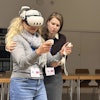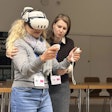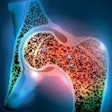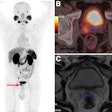
NEW YORK (Reuters Health), Dec 3 - Most children who survive septic shock exhibit normal cardiac function, although a few patients will have rhythm disturbances and decreased ventricular function, new research suggests.
Septic shock may damage the myocardium, resulting in potential long-term cardiac abnormalities, according to the report in the Archives of Pediatrics and Adolescent Medicine for December. Furthermore, the inotropic and vasoconstrictive agents used to treat shock may have harmful effects as well.
The goal of the present study, conducted by Dr. Hendrika Knoester and colleagues from Emma Children's Hospital, Amsterdam, the Netherlands, was to assess cardiac function in pediatric patients more than six months after an intensive care stay for septic shock. Included were 108 survivors who were seen at the researchers' center from 1995 to 2005.
ECG and echocardiographic data from the patients were compared with those obtained from 52 healthy controls with a benign murmur.
None of the shock survivors had abnormalities on history assessment and physical examination that were attributable to heart dysfunction, the report indicates.
On exercise and 24-hour ECG registration, two patients (6%) had polymorphic premature ventricular contractions. Echocardiography revealed decreased left ventricular function in two patients and decreased right ventricular function in one patient. One additional patient had both decreased left ventricular function and polymorphic premature ventricular contractions.
"In this small and diverse group of pediatric septic shock survivors," the authors conclude, "we found excellent recovery of cardiac performance in most patients." Some patients did, however, have rhythm and functional disturbances, and long-term follow-up of these patients is important, they add.
Arch Pediatr Adolesc Med 2008;162:1164-1168.
Last Updated: 2008-12-02 14:10:34 -0400 (Reuters Health)
Related Reading
Cardiovascular response to dobutamine may predict outcome of severe sepsis, April 9, 2008
Copyright © 2008 Reuters Limited. All rights reserved. Republication or redistribution of Reuters content, including by framing or similar means, is expressly prohibited without the prior written consent of Reuters. Reuters shall not be liable for any errors or delays in the content, or for any actions taken in reliance thereon. Reuters and the Reuters sphere logo are registered trademarks and trademarks of the Reuters group of companies around the world.


















